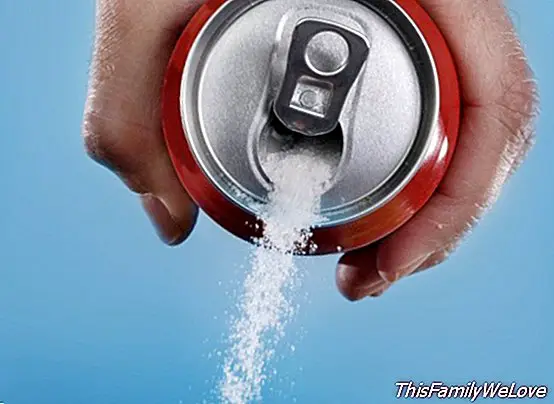WHO supports fiscal initiatives to reduce sugar consumption
¿Sugar is so harmful to health like alcohol and tobacco? The sanitary authorities consider that yes, and for this reason they intend to tax highly sugary products with fiscal measures to minimize the consumption of sugar.
With the intention of reducing the consumption of food and beverages with excess sugar, because they cause serious diseases among the population worldwide, initiatives have begun to emerge to minimize the impact of sugar on our health. Thus, several initiatives have emerged to dissuade the population from its consumption through specific taxes. In this way, according to experts, increasing the price of the product would reduce the consumption of sugar between the population.
Cities such as Berkeley, in California, or countries such as Mexico, have already adopted the imposition of these rates as well as the United Kingdom or Philadelphia, which, starting in 2017, will begin to operate.
Tax initiatives to reduce sugar consumption
The results of a study conducted in the areas where these tax measures had been implemented demonstrated that the consumption of sugar had been reduced by 21 percent in front of 4 percent increase in the other zones without the tax approved. In addition, the water consumption soared 63 percent, while in the other cities it had only grown 19 percent. The sanitary authorities of these zones detected that it was a very effective fiscal and health measure, since it grants remarkable benefits for the health of the people.
The World Health Organization (WHO) Not only supports these tax initiatives to reduce sugar consumption, but requests that the tax rate be at least 20 percent on the price of these products so that consumption rates are considerably reduced.
The WHO clarifies that in the diet no sugar is required, so it recommends that people who take added sugars or take sugary products keep that intake below 10 percent of their total energy needs. If you want to get benefits, the ideal is to lower that percentage to 5 percent. In more manageable figures, this would be equivalent to taking less than one can of soda per day, about 250 ml.
Sugar: responsible for obesity, diabetes and tooth decay

Sugar is one of the causing obesity or type 2 diabetes, diseases that are increasing in our society. Other serious consequences of high sugar consumption, is the possible development of a constant feeling of hunger, fatty liver or pancreatic cancer, among other things. And finally, sugar is responsible for unleash cAries, the most widespread disease worldwide, with a rate of almost 100% among adults and between 60% and 90% of children.
Currently, the lcalled "free sugars" or added, which manufacturers include in different products, such as lsugary drinks or soft drinks, are the subject of analysis by all specialists.
In the field of dentistry, and regarding oral diseases, consuming sugary drinks, foods with added sugars and even sweetening our food ourselves, can cause serious damage over time in the tooth enamel. In this sense, a double harmful agent for our teeth is gas.The drinks with gas They have carbonic acid and over time it wears out the tooth enamel, which increases the sensitivity of the teeth and creates a greater predisposition for caries to form.
Marisol Nuevo Espín




